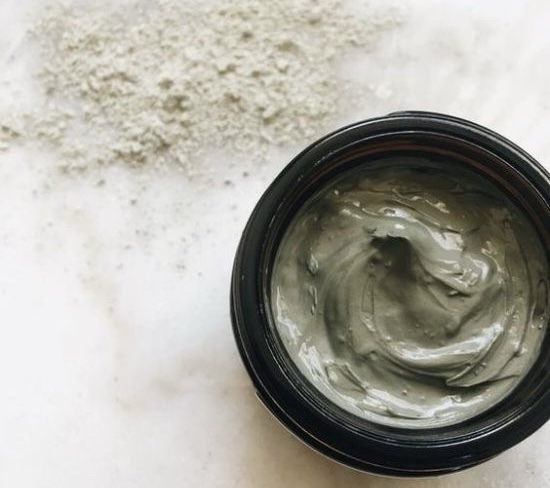Africa is a continent abundant in culture, diversity, and natural beauty. For generations, African women have passed down age-old beauty secrets that enhance their natural features and maintain radiant skin, luscious hair, and overall well-being. These traditional practices, rooted in cultural heritage and a deep connection to the land, continue to inspire beauty enthusiasts around the world. Let’s take a closer look at some of the time-honored African Beauty Secrets and natural ingredients that have lasted over the years.
-
Shea Butter:
Shea butter is cherished in African beauty rituals for its moisturizing and nourishing properties. It comes from the nuts of the shea tree, native to West Africa. It is rich in vitamins A, E, and F, and essential fatty acids. Shea butter is a versatile ingredient that has earned its place in the beauty routines of African women across the continent. It can be applied directly to the skin to keep it soft, supple and radiant, used as a hair conditioner or incorporated into homemade beauty products like body butters and lip balms.
-
Black Soap:
Traditional African black soap, also known as “ose dudu” or “alata samina,” is another beauty secret that has stood the test of time. It contains natural ingredients like plantain skins, cocoa pods, palm kernel oil, and shea butter. Black soap is renowned for its gentle cleansing and skin-nourishing properties. It effectively removes dirt, oil, and impurities without stripping the skin’s natural oils, making it suitable for all skin types, including sensitive skin. African women often use black soap as a daily facial cleanser or body wash, enjoying its soothing and clarifying benefits. Apart from the traditional black soap, various regions across Africa have their own versions of black soap with unique ingredients and benefits. For example, Ghanaian black soap often contains cocoa pod ash, palm oil, and coconut oil, while Nigerian black soap may include ingredients like camwood, honey, and aloe vera. These variations offer specific skin benefits such as acne treatment, skin brightening and soothing irritation.
-
Argan Oil:
Argan oil, often called “liquid gold,” comes from the kernels of the argan tree native to Morocco. However, it is also found in some parts of Africa. It contains antioxidants, vitamins, and essential fatty acids. Argan oil has moisturizing, anti-aging, and skin-softening properties. African women incorporate it into their beauty routines as a multipurpose moisturizer, hair treatment and even as a natural remedy for dry, brittle nails.
-
Hibiscus:
In addition to being a popular beverage, hibiscus is also a cherished beauty ingredient in many African cultures. Known as “zobo” in Nigeria and “sobolo” in Ghana, hibiscus is rich in vitamins, minerals, and amino acids. It promotes hair growth, strengthen hair follicles, and add shine and luster to the hair. African women often brew hibiscus tea or create homemade hair masks with hibiscus petals to nourish and revitalize their locks.
-
Marula Oil:
Another favorite is Marula oil which comes from the kernels of the marula fruit, native to Southern Africa. It has hydrating, anti-aging, and skin-softening properties. Marula oil contains antioxidants and omega fatty acids. It deeply moisturizes the skin, reduces the appearance of fine lines and wrinkles and restores the skin’s radiance. African women incorporate marula oil into their skincare routines as a luxurious facial oil or as a nourishing body treatment.
-
Baobab Oil:
Baobab oil comes from the seeds of the iconic baobab tree native to Africa. It is another favorite beauty ingredient that is rich in vitamins A, E, and D, as well as omega fatty acids. Baobab oil deeply moisturizes the skin, promotes cell regeneration and improves elasticity. African women incorporate baobab oil into their skincare routines to combat dryness, reduce the appearance of stretch marks and achieve a radiant complexion.
-
Rooibos Tea:
Rooibos tea, also known as red bush tea, is native to South Africa. It has numerous health and beauty benefits. Rooibos tea is rich in antioxidants, minerals, and alpha hydroxy acids. It helps to soothe inflammation, fight free radicals and promote youthful-looking skin. African women often use rooibos tea topically as a toner or incorporate it into homemade face masks for its calming and rejuvenating properties.
-
Moringa Oil:
Moringa oil, from the seeds of the moringa tree native to Africa and Asia, is antioxidant-rich and anti-inflammatory. Packed with vitamins A, C, and E, it nourishes and revitalizes skin, reducing fine lines, wrinkles, and blemishes. African women use it as a lightweight facial oil or as a nourishing treatment for dry, damaged hair.
-
African Mud Masks:
African mud masks, rich in minerals and detoxifying properties, draw out impurities and promote a clear complexion. Ingredients like bentonite clay, rhassoul clay, and kaolin clay offer deep cleansing, exfoliation and oil control.
-
Neem Oil:
Neem oil comes from the seeds of the neem tree native to Africa and Asia. It is celebrated for its antibacterial, antifungal, and antiseptic properties. Neem oil is rich in fatty acids and vitamin E which help to heal and protect the skin. This makes it ideal for treating acne, eczema, and other skin conditions. African women incorporate neem oil into their skincare routines as a spot treatment for blemishes or as a natural remedy for scalp issues like dandruff and itching.
From shea butter to black soap, argan oil to hibiscus, Traditional African Beauty Secrets celebrate the beauty of our continent. By incorporating these time-honored practices into our modern routines, we can enhance our natural features, nourish our skin and hair and connect with Africa’s rich cultural heritage.
Hugs and Kisses,
Msglam.






Leave a Comment